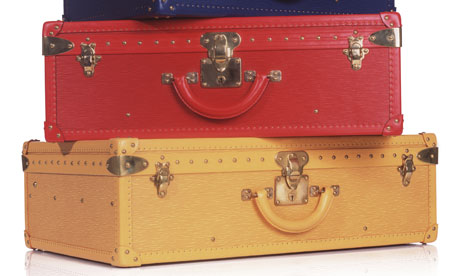
It's freezing. Like everyone else I have had "a virus" for months. I have loads to do and no time, so where am I? Yes, chasing some cheap sun – online, obviously. Hello my old friend, TripAdvisor, the site that always gives me too much information about holidays I shall never go on. I find it strangely comforting. People griping about dirty pools are the perfect antidote to most travel writing in which famous people have an exquisite time.
Apparently, though, not everything on TripAdvisor is to be believed. Some of the reviews may be done by hoteliers themselves. You know, rather like the novelists who write their own reviews on Amazon. The Advertising Standards Authority has rapped TripAdvisor on its tanned knuckles as it claims it offers "honest" and "trusted advice from real travellers". A company called KwikChex that specialises in "online reputation management" had argued that the website could not prove all the reviews came from real travellers.
But the best reviews, ie the worst on TripAdvisor, are why it works. No travel writer would bother with details like "rooms 1109, 1111, 1115 and 1117 are opposite an engineering workshop and we had loud sounds of hammering, drilling, sanding etc until way into the the evenings." Nor would I know about Omer in reception with a lovely smile, Russians nicking the sunbeds, cold chips in the buffet or that many people's holidays are a series of unfortunate events. "Our vacation was interrupted by the notorious events taking plaice in Cairo due to the revolution and my friend was really reluctant to leave as she enjoyed warm weather."
Ordinary people when given free rein are incredibly petty but mostly truthful. Such sites cut out the middle men or women, the professional "travellers" who never stay anywhere other than five-star or fly cattle-class. Write about what you did on your holidays? Yes we do, at great and pedantic length.
The excising of the expert reviewer is happening right across the board. Who needs expertise when every Tom, Dick and Harriet reviews everything for free anyway. Isn't this truly democratic? The nature of criticism is changing, so this hierarchy of expertise is crumbling. Whether this is about travel, architecture or indeed art, the default mode of the blogosphere is: "I may not know about art but I know what I don't like." The same is true of journalism, for it is always easier to be entertainingly hateful than to express appreciation, whether it be for a fine movie or meal.
Much of this is to do with the web but the dumbing-down of specialist criticism preceded this many years ago in print media. Slash-and-burn proprietors were asking: why couldn't a reporter review a ballet? I mean, what was there to know? Such dumbing-down is the flipside to a more "democratic" approach. To insist that reviewers should have spent some time studying their subject, honing their skills and taste and be more than simply fans I realise now sounds old-fashioned.
Perhaps I care because I was once a film critic, and as I see much-loved people dismissed I see years of passion and experience of cinema declared redundant. Clever actors know this too. Meryl Streep has said critics have become "scarily irrelevant". Kevin Spacey says the role is shifting. The web means we are all critics. Does this mean we get better culture? Part of what proper criticism used to do was help create audiences, especially for less commercial films or music.
Sustained critique of a film or a TV show is way too arduous for those who live in instant Twitter reaction. Yet this is now the feedback loop, with TV producers watching it all in real time. We all review everything instantaneously. We are all laptop critics. This empowers the the wits and the haters but it does not do much for – to use a really last-century word – a more deconstructive approach.
Another consequence of everyone being an expert is that the shallowness in some of these fields of expertise is visible. If "experts" on fashion or beauty or travel or food actually live in a world where nothing is paid for, or they spend two weeks in the Maldives having grapes peeled for them or walk into restaurants where they are automatically given the best table, what are they representing except their own egos?
The lobby system that keeps feral political journalists in captivity is corrupting, and the PR/freebie industry is another kind of lobbying. As the finest of critics, John Berger, once said: "Publicity is the life of this culture. Without publicity, capitalism could not survive and at the same time publicity is its dream." Strange days indeed when "proper" journalism is schmoozed out, whereas online reviews declare nothing but their own brilliance.
Trust is the issue here. Why do I listen to certain people telling me about a film or an exhibition? Because I know they know much more than me. I respect their experience, no matter how much marketing may seek to critic-proof some duff product. So yes, we are all critics now but some are more equal than others. A quick trip to TripAdvisor soon demonstrates that not everyone tells you the things you actually want to know. In this never-ending review of everything, credibility is still hard to fake.

